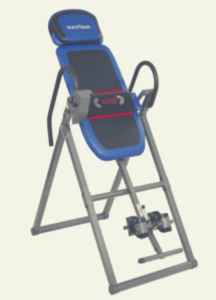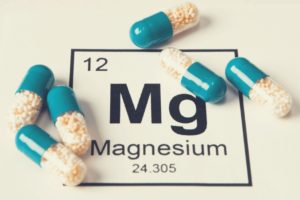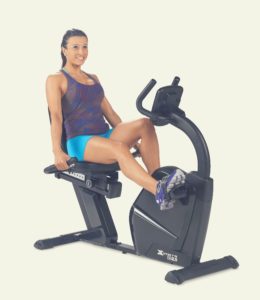If you are in a hurry and just want to find out what the best rice protein for muscle gain is, then we recommend Performance Lab® SPORT Protein as the best one.
If you’re looking for a way to build muscle, you might want to check out rice protein.
Despite rice falling firmly into the carbohydrate category on the food pyramid, there’s actually a lot of protein packed in there as well.
Let’s talk a little about rice protein and the five best rice protein powders available.
Here are the top rice protein we’ll be reviewing:
- Terrasoul Superfoods Organic Sprouted Brown Rice Protein Powder
- Naked Rice Brown Rice Protein Powder
- Judee’s Brown Rice Protein
- Nutribiotic Vanilla-Flavored Organic Rice Protein
- Performance Lab® SPORT Protein

What Is Rice Protein?
Rice protein is exactly what it sounds like – protein derived from rice. It’s almost always taken from brown rice because the brown husks on rice are a significant source of protein.
When the husks are removed, white rice no longer contains as much protein. Incidentally, this is one of the reasons brown rice is better for you overall.
How’s It Made?
Rice protein is made by grinding up grains of rice and putting the ground-up powder through a process that separates the protein in it from the carbohydrate.
For most reputable companies, it’s a safe, simple, chemical-free process, which is why the best rice protein supplements are all-natural, with no added ingredients that you can’t pronounce.
What Are the Benefits of Taking It?
There are so many benefits to taking protein powder in general and rice protein powder specifically.
Helps Build Bigger Muscle
Since we’re talking about the best rice protein for muscle gain, it’s obvious that building muscles is one of the largest benefits.
This is a common benefit of all protein supplements, no matter how they’re sourced.
However, some people overlook rice protein because they’ve heard myths that plant-based protein can’t help build muscle.
A myth is exactly what that is.
Studies comparing whey and rice have consistently proven that there are very few differences between the results seen in users of both powders.
When only taken in small doses, whey powder does have a very slight advantage over rice protein, but when it’s taken in large doses, there are no discernible differences between the two.
Protein helps build muscle, regardless of whether it comes from a cow or a plant.
Aids in Recovery
If you’re a fitness junkie, you already know recovery days are just as important as your workout days because that’s the period when your body’s repairing and building new muscle.
Rice protein can help the body do this because it’s packed full of good stuff like amino acids, which are essential to a process known as protein synthesis, antioxidants, fiber and vitamin B-6.
In short, it can help you feel better faster and help your body and muscles recover after an intense workout.

Can Aid in Weight Loss
In rice protein, most, although not all, of the carbs are removed, leaving only a concentrated dose of protein behind.
Consuming plenty of low-calorie protein can help you feel fuller for longer, making you want to eat less and helping you keep your portion sizes under control.
Additionally, proteins take more energy to digest, so you’ll also burn more calories by simply digesting the supplement.
Easily Digested
Although rice protein is digested more slowly than whey protein, it’s not a slow-digesting protein. It digests easily in a reasonable amount of time.
Furthermore, even though it isn’t digested as quickly as whey, it’s digested more easily, meaning it causes less irritation to the gastrointestinal processes in your body.
Helps Regulate Blood Sugar
Interestingly enough, studies have shown that rice protein can even help regulate blood sugar.
Scientists have long known that consuming plenty of protein can help regulate blood sugar in the short-term, but a study conducted in 2017 determined that eating a diet that’s high in animal protein can actually increase the risk of Type 2 diabetes in the long run.
A diet that’s high in plant-based protein, though, was shown to significantly reduce that risk.
Vegan-Friendly and Allergen-Free
As opposed to whey protein, all the best rice protein supplements are vegetarian- and vegan-friendly.
They’re also hypoallergenic, which means they’re free of soy, gluten, lactose and other things that may cause allergic reactions.
True or False – What Critics Are Saying
Before we get to the products, I wanted to play a quick game of “True or False” with some of the most oft-cited “disadvantages” to rice protein.
It Isn’t a Complete Protein
True.
Whey and other proteins that come from meat and dairy are considered complete proteins because they contain all nine of the essential amino acids.
Rice protein is missing or low on a couple of them.
You can easily mix it with another vegan-friendly powder like hemp to get everything you need, though.
It’s Unhealthy for You to Take
False.
This is simply untrue. Rice protein is so safe, in fact, that many companies are now adding it to baby food to ensure babies get enough healthy, plant-based protein.
People with Diabetes Can’t Take It
False.
As long as a diabetic has been told he or she can safely take protein supplements, there’s no reason that person can’t take rice protein, as it usually contains only one more carb per serving than whey protein.
It Can Cause Bloating
True for a Small Percentage of People.
This has been proven true in a small percentage of people, but it’s usually more an issue of brand rather than rice powder in general.
The 5 Best Rice Protein Powders for Muscle Gain
*Note: All rice protein is vegan-friendly and contains no soy, lactose or gluten, so I didn’t bother to point that out on each brand.
Terrasoul Superfoods Organic Sprouted Brown Rice Protein Powder
Thanks to its consistently low prices, Terrasoul Superfoods Organic Sprouted Brown Rice Protein Powder is a budget-friendly rice protein. The biggest issue is the taste.
It’s unflavored, but that just means there have been no additives to make it taste like something else.
It definitely has a strong, chalky taste. Other than that, it’s all-natural, sourced from whole grain rice and easily digested.
It’s a little lower in protein than I like, having only eight grams per serving, but it also mixes better than some of the others, so if you plan on mixing two protein sources to get all your essential amino acids, this is a good option and should give you the desired amount of protein.
I began noticing actual improvements in my musculature early on while using this one along with hemp powder, but I didn’t notice feeling any better during my recovery times.
Pros
- Affordable.
- Can rapidly provide muscle gains.
- Mixes well with other proteins.
Cons
- Strong, unpleasant taste.
- No noticeable impact on how you feel during recovery.
- Only eight grams of protein per serving when used alone.
Naked Rice Brown Rice Protein Powder
Naked Rice Brown Rice Protein Powder is fairly expensive, but if you can afford it, it’s a decent product if you can overcome the texture. It’s very gritty and sandy and doesn’t taste great.
The product’s pure, though. It’s made of only a single ingredient – sprouted brown rice – so you don’t have to worry about hidden preservatives or sugars or anything like that.
This makes it one of the most easily digested rice proteins, although a couple of my friends did complain that it gave them bad gas while using it.
A major point in its favor is that it has a whopping 25 grams of protein in every serving, which is extremely high.
My friends and I could all tell a noticeable difference in how we felt on recovery days, and we started seeing physical results very quickly.
There are 120 calories in each serving, though, so if you’re concerned about counting calories, it might not be the best option.
Pros:
- Single-ingredient powder, easy to digest.
- 25 grams of protein per serving.
- Excellent for recovery and for seeing quick results.
Cons:
- Expensive.
- Can cause gas.
- Terrible texture.
- 120 calories per serving.
Judee’s Brown Rice Protein
Judee’s Brown Rice Protein is another good option for the budget-conscious shopper. It contains 21 grams of protein per serving and only 100 calories, which isn’t low but is fairly standard.
It’s unflavored, which I’ve already mentioned doesn’t equal flavorless, but for whatever reason, this one doesn’t taste as bad as some of the others.
It’s not tasty, by any means, but it’s mild and easily covered. The texture’s still a bit gritty though. Where this one really shines is in baking.
After trying it out for a while, I decided to buy some to keep on-hand regularly for baking things I could take to the gym (power bars, brownies, etc.).
It packs a nice punch and tastes delicious after being cooked. Muscle gains and recovery periods were noticeably improved.
Pros:
- Perfect for baking high-protein snacks.
- Affordable.
- 21 grams of protein; 100 calories.
- Taste is easily masked.
Cons:
- Gritty texture.
- Doesn’t mix well in certain bases.
Nutribiotic Vanilla-Flavored Organic Rice Protein
While Nutribiotic Vanilla-Flavored Organic Rice Protein doesn’t give you the best value for your money, it’s not super expensive, and I like that it comes in a three-pound container.
With only 12 grams of protein per serving, it’s a little lower than optimal, but it only has 60 calories, which means you could double the serving without adding too many extra calories.
In theory, you could mix it with hemp or pea protein, but the vanilla flavoring often leads to an unpleasant flavor combination.
This one was one of the best we found for sensitive stomachs.
My brother has a lot of stomach issues naturally, and most protein powders don’t work for him; this one didn’t give him any trouble at all.
The taste isn’t bad when drinking it alone, but the texture is thick and gritty.
My recovery days were improved significantly with this powder, but it took me longer to see results in musculature than with the other powders.
Pros:
- Great choice for sensitive stomachs.
- Tastes okay.
- Produces significant recovery benefits.
- Low calorie.
Cons:
- Only 12 grams of protein per serving.
- Slow to add muscle.
- Not good for mixing with other powders.
- Gritty texture.
Performance Lab® SPORT Protein
Marketed as “the world’s cleanest and most effective protein powder,” Performance Lab® SPORT Protein is an excellent rice protein.
There are 20 grams of protein in every serving and only 100 calories. It’s flavored with all-natural ingredients and tastes like chocolate, which is much preferable to the “unflavored” option others have.
It’s also the only brand patented for enhancing athletic ability thanks to its main ingredient, oryzatein, which is the only brown rice protein that’s been proven to build muscle just as quickly as whey.
Aside from the price, which is admittedly high, my friends and I found no downsides to this powder.
Pros:
- Tastes great.
- Builds muscle as effectively as whey powder (larger muscles grown faster).
- Exceptional for recovery.
- 20 grams of protein per serving.
- Only 100 calories and two carbs per serving.
Cons:
- Expensive.
Related: Check out our full review of Performance Lab® SPORT Protein here.
The #1 Pick for the Best Rice Protein Powder
Sometimes I have a hard time picking a single “best” product after I’ve narrowed down my favorites, but this time it was no contest.
Performance Lab® SPORT Protein was easily the best rice protein I’ve used, despite its price.
I saw the quickest, best results in terms of large muscle gains, and I felt better on my recovery days while using this product than I did with any of the others.
The taste was good; the texture was okay. Neither I nor any of my friends experienced gas or bloating. It was easy to pick a winner this time.








